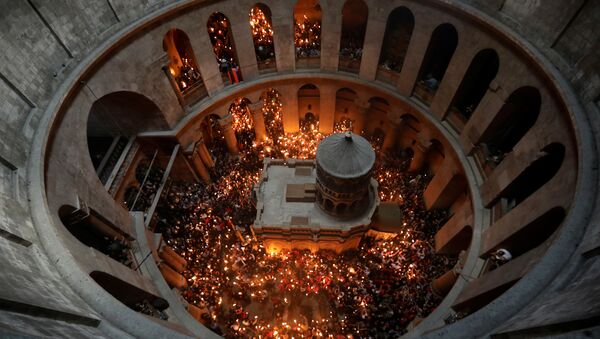On Sunday, representatives of the Greek Orthodox Church, Armenian Apostolic Church and Catholic Church announced they would be closing the doors of the Church of the Holy Sepulchre in Jerusalem, which is collectively managed by the churches, in protest against the Israeli authorities' decision to impose taxes on real estate owned by the churches. Local authorities have already started freezing the churches' assets and informed them about the $186 million in unpaid taxes.
"I really hope that a common ground will be found between the State of Israel, the Israeli authorities and the church authorities. It is not an ideological conflict but rather about financial settlement. The Church used to lease a lot of lands to the State of Israel. From what I grasp, the authorities were hoping to receive an answer to a question about the use of these lands in the future. I really do hope that the churches will reopen soon, the negotiation will continue, this is the only reasonable outcome. I hope the government will exercise its diplomatic skills in order to find solution to the current tension," Svetlova said.
"The conflict did not start yesterday. The Greek Orthodox Church owns most of the lands in the West Jerusalem and also some lands in East Jerusalem. Prior to the recent decision of the municipality long negotiations took place. It seems that these negotiations failed to find a common ground, therefore, the decision was taken by the municipality to collect taxes from the church. The Church is the only body in Jerusalem that does not pay taxes," the lawmaker said.
The Church of the Holy Sepulchre is one of the holiest sites of the Christian world. According to Christianity, the church was built at the place where Jesus Christ was crucified and later buried and resurrected. The miracle of the Holy Fire occurs in the church every year ahead of Orthodox Easter.



